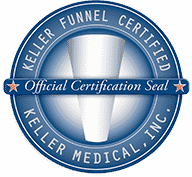Is board certification by the American Board of Plastic Surgery important?
Yes! When choosing a plastic surgeon to perform your procedure of interest, it is important that you choose a board-certified plastic surgeon. Many surgeons today perform cosmetic procedures without board certification, which can lead to complications or unwanted results.
Physicians certified by the American Board of Plastic Surgery:
- Are medical school graduates
- Complete at least six years of surgical training following medical school with a minimum of three years of plastic surgery residency training
- Have completed oral and written exams
- Are required to maintain their skills through continued education
- Must pass a rigorous re-certification process every 10 years to stay in compliance with being a board-certified plastic surgeon
- Are held to high ethical standards
Dr. Bohley is a double board-certified plastic surgeon with extensive experience performing procedures of the breast, body, and face.
What should you know about the safety of outpatient surgery?
While thousands of people benefit from plastic surgery every year without complications, no surgical procedure is 100% risk-free. To ensure your surgical experience is a safe one, confirm the following:
- That your surgeon is board certified by the American Board of Plastic Surgery (ABPS).
- That the surgical facility where your procedure will be performed follows strict safety standards and is accredited by the American Association of Accreditation of Ambulatory Surgical Facilities, the Joint Commission on Accreditation in Healthcare Organizations, or the Accreditation Association of Ambulatory Health Care.
- That a skilled, licensed personnel is used to administer and monitor anesthesia and recovery following the procedure.
The Aesthetic Breast & Cosmetic Surgery Center (ASC) is staffed by highly trained professionals and has been in operation since 1992. We provide only the best care possible to patients in the Pacific Northwest and beyond.
What can I do to minimize swelling or bruising?
Following your procedure, you will likely experience bruising and swelling. It may make sense to sleep in a reclining position to minimize swelling in the face and eyelids. Cold compresses may also be able to help with swelling. Dr. Bohley will give you specific post-op instructions based on your individual procedure to help accelerate the healing process.
What is the difference between cosmetic and reconstructive surgery?
Cosmetic surgery is performed to reshape normal structures of the body in order to improve a patient’s appearance and self-esteem. Cosmetic surgery is usually not covered by health insurance because it is elective. Reconstructive surgery is performed on abnormal structures of the body that are caused by congenital defects, developmental abnormalities, trauma, infection, tumors, or disease. It is generally performed to improve function, but may also be done to approximate a normal appearance. Reconstructive surgery is generally covered by most health insurance policies although coverage for specific procedures and levels of coverage may vary greatly. My staff will help you determine if your insurance company will cover your procedure.
What is recovery from plastic surgery like?
Each patient tolerates post-operative pain differently. While some patients may describe the pain as an ache, others experience greater discomfort. Appropriate pain medications are prescribed to help minimize discomfort. Most facial cosmetic operations have very little discomfort after the surgery. Liposuction is slightly more uncomfortable, and procedures that require elevation or tightening of the muscles-such as a tummy tuck or breast augmentation, have discomfort equal to that of a C-section. We place a high priority of adequate post-operative pain control. My staff will work with you to customize a regimen that meets your individual requirements.
How long is the recuperative period and when can I return to work?
The length of time it takes to recuperate after plastic surgery varies depending on the procedure and the patient. Most patients require assistance for the first two days, especially if they have small children to care for. Specific lengths of time are outlined by procedure, including the amount of time before you can exercise or participate in strenuous activities.
When can I resume regular exercise?
When you can exercise depends on the procedure you had and your rate of recovery. All patients are encouraged to start a slow walking routine on the second day after surgery. Aerobic activities are not allowed during the first two weeks in order to decrease the risks of bleeding, swelling, and bruising. Weight lifting and contact sports are allowed at 4-6 weeks in most cases.
What kind of anesthesia is used?
The type of anesthesia used is determined by the procedure performed and the needs of an individual patient. We use local anesthesia, local with sedation, and general anesthetics at our facility.
Who is a good candidate for cosmetic surgery?
A good candidate for cosmetic surgery is someone who seeks to improve a particular aspect of his or her appearance, has realistic expectations about what the surgery can and cannot accomplish, is in good physical condition, and is willing to follow the surgeon’s recommendations regarding pre- and post-operative care.
How much does it cost?
It is impossible to provide a realistic estimate of fees until we’ve met and discussed what surgery you want to have performed. For example, after you understand more about what is involved, you may choose to have more than one procedure done at the same time. Once I assess your individual surgical needs, I will provide you with a line-by-line estimate so you know the cost and how my staff and I arrived at that price.
Is financing available?
Yes, we have partnered with Cosmetic Fee Plan to make financing available to those patients who would like a flexible monthly payment option. We also accept Visa, MasterCard, and American Express.







